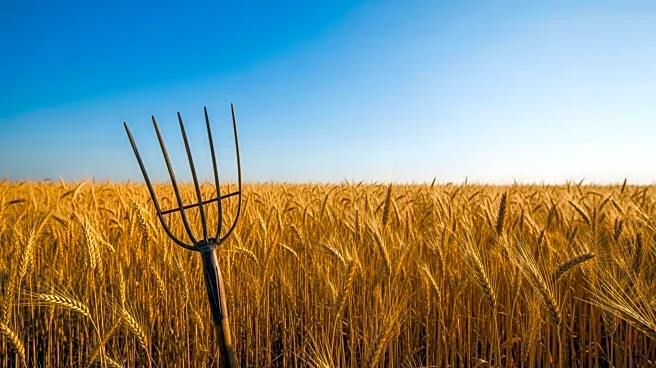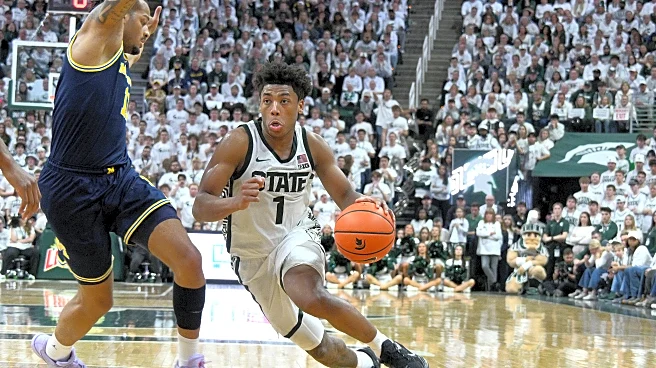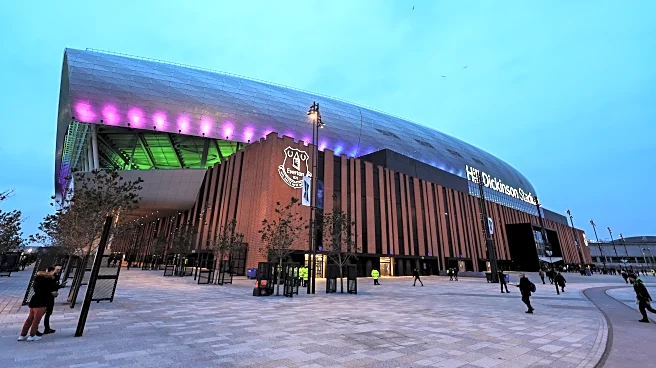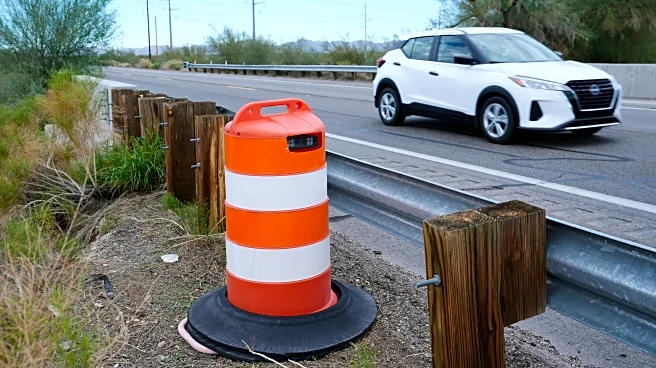What's Happening?
The European Union's executive arm has introduced proposals aimed at protecting European farmers from potential negative impacts of the Mercosur trade deal. This agreement, involving the EU and Mercosur countries such as Brazil and Argentina, seeks to eliminate duties on most goods traded between the two regions over 15 years. However, the deal has faced opposition from Europe's agriculture sector, which fears being undercut by cheaper imports. The EU's new proposals include mechanisms for farmers to lodge complaints and trigger investigations into trade imbalances. If imports from Mercosur are priced significantly lower than EU products, the EU could temporarily withdraw preferential tariffs. Special provisions are also in place for sensitive sectors like beef and ethanol.
Why It's Important?
The Mercosur trade deal, if ratified, would create one of the world's largest free trade zones, impacting a market of 780 million people. While it promises to save businesses billions in duties, it poses a threat to European farmers who fear unfair competition and environmental harm. The EU's agriculture sector is a significant part of its economy and culture, with exports worth billions annually. The new protections aim to balance the benefits of the trade deal with the need to safeguard local agriculture, addressing concerns from farmers and political groups who have protested against the deal.
What's Next?
The EU-Mercosur deal requires approval from the EU's 27 member states and the European Parliament. As negotiations continue, the EU will need to address the concerns of its agricultural sector while promoting the economic benefits of the trade agreement. The outcome will likely influence future trade policies and the EU's approach to balancing economic growth with protecting domestic industries.












